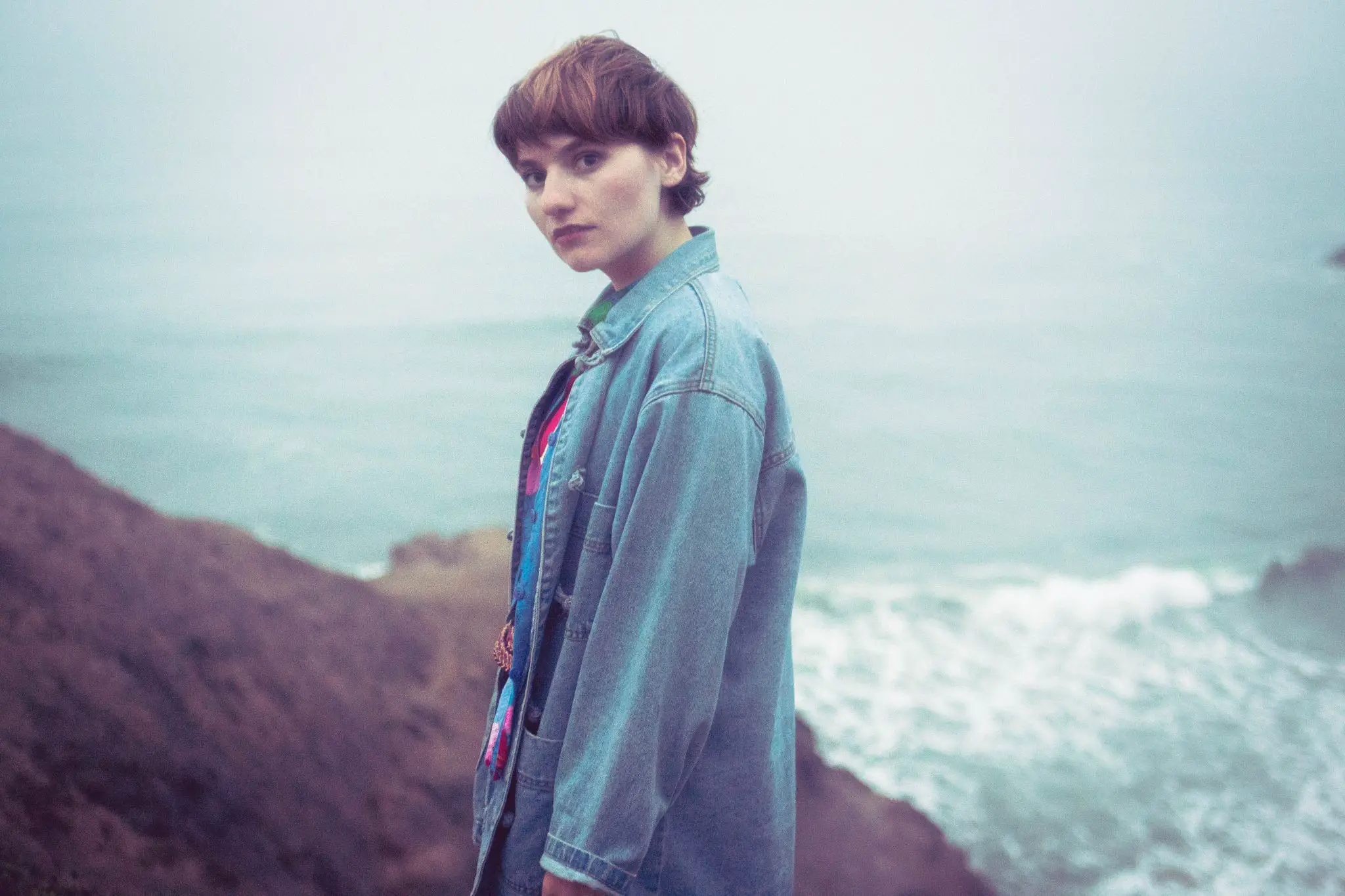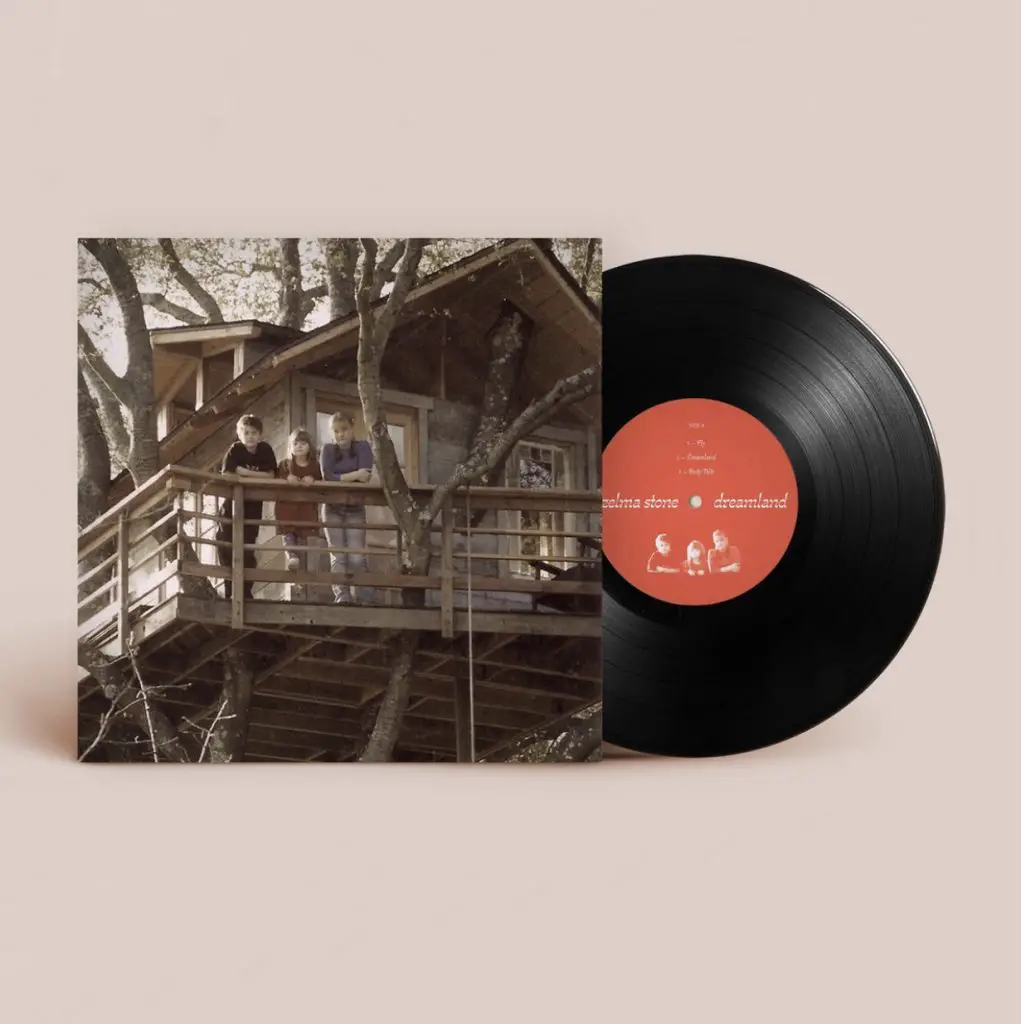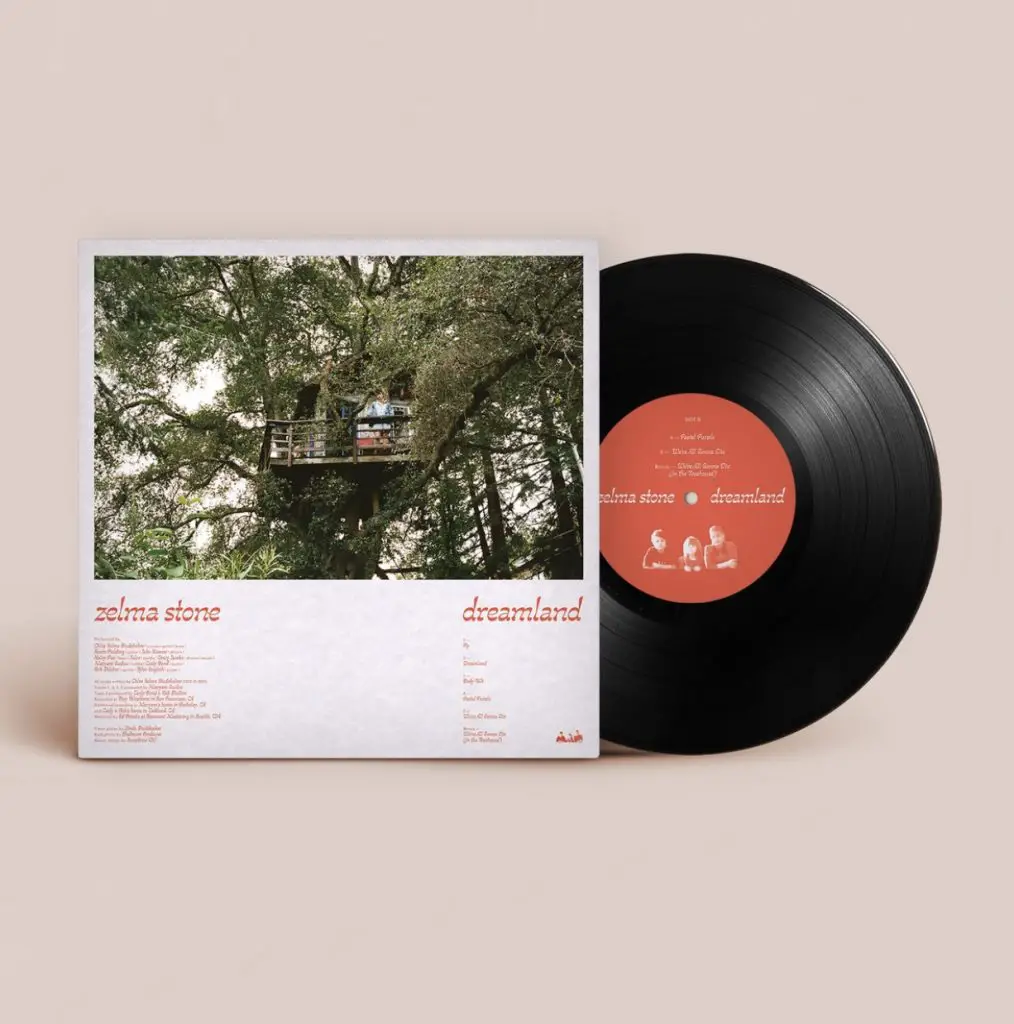“Take your broken heart, make it into art.” Said the late, great Carrie Fisher. Chloe Studebaker of Zelma Stone fame has lived, endured, and actualized that motto, if you will, pouring her heart and soul into a mélange of melancholic melodies and soothingly sanguine vocals with her latest Dreamland EP – a hypnagogic, five track meditation on grief and the bittersweet, fleeting cycle of life. The singer-songwriter and skilled guitarist began composing at age 14 after losing her 19-year-old brother and guitar mentor, Brett, an exceedingly kind soul, to a tragic car accident.
“When Brett died, it felt important to continue my guitar lessons with his teacher.” Studebaker says. “My brother was an amazing musician and I always looked up to him. He still inspires me today.”
Over the course of the following decade, Studebaker lost her mother, grandfather, and dear friend, Jenny. Her therapeutic music is a fine-tuned amalgamation of the profound adversity she’s faced – and the emotional, mental, and spiritual weight with which that adversity lingers – fashioned into a singular sound that will undoubtedly be ringing in the ears of music lovers far and wide for years to come as Zelma Stone continues to work on new music (songwriting productivity has sufficiently spiked during COVID-19 quarantining).

“I feel really fortunate to have a creative outlet for processing and expressing grief.“ Studebaker says. “I think music and sound have profound healing elements. I feel very safe when I’m writing songs.”
To quote another great artist who left this world too soon, Robin Williams, “You know what music is? God’s little reminder that there’s something else besides us in this universe; harmonic connection between all living beings, everywhere, even the stars.” Studebaker’s Dreamland EP** engrains into the psyche of its listeners the essence of Williams’ quote from August Rush. “There’s more to life beyond the body.” Studebaker explains.
However, Studebaker’s music is the opposite of preachy. It’s akin to taking a magic carpet ride through an assortment of affecting adages.
Zelma Stone
Zelma is the middle name of Studebaker, a Burlingame, California native and the founder of and mastermind behind Zelma Stone.
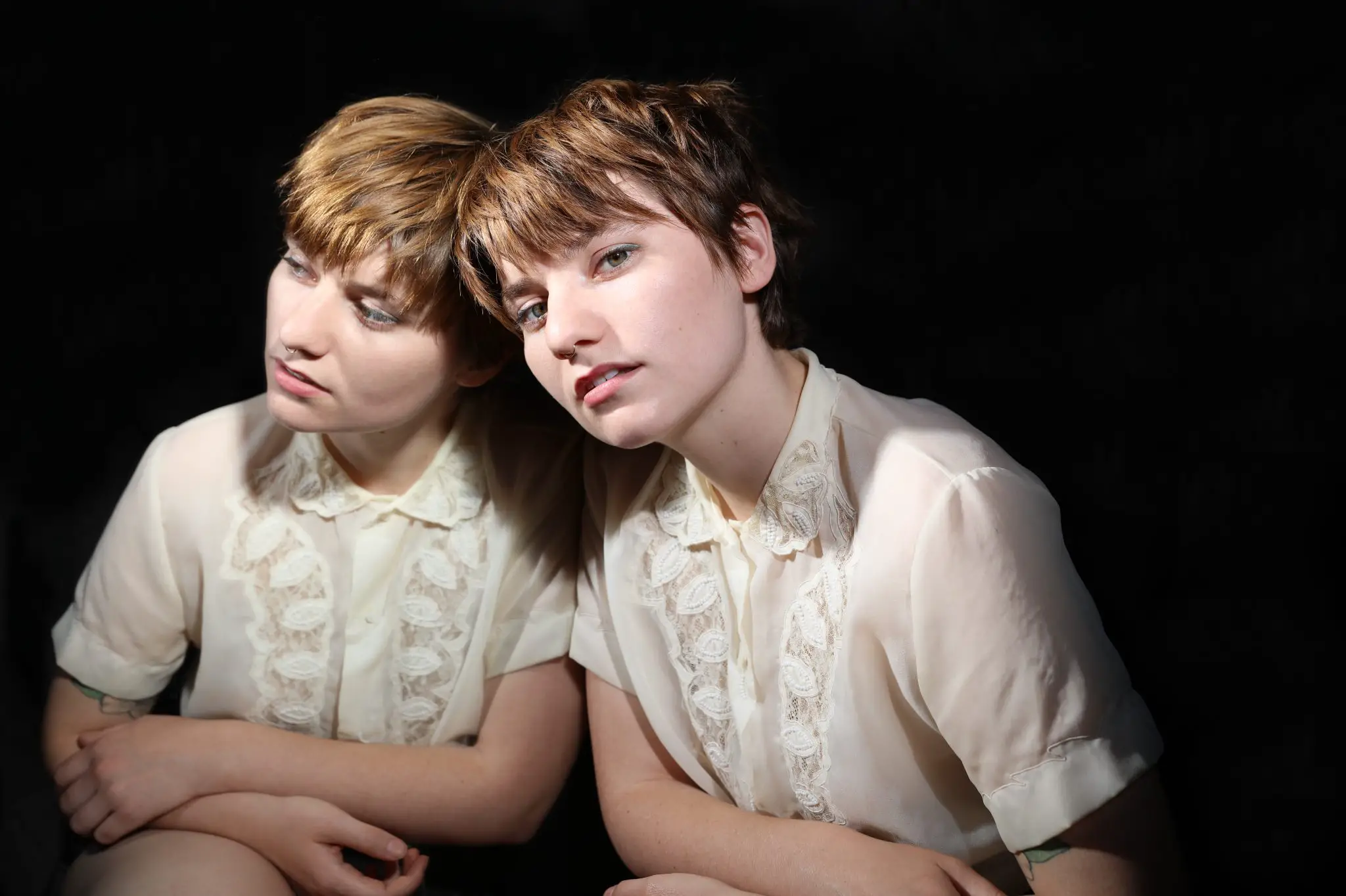
“Zelma Stone formed in 2017 when I was taking music classes at a local community college.” Studebaker explains. “I had written some songs on my own and felt compelled to start a band. I began collaborating with a few classmates and friends who were down to start something with me. As Zelma Stone has evolved, I have been fortunate to play with an awesome and talented group of rotating musicians since then.”
In only three years since Zelma Stone’s inception, the band has experienced a spectacular rise to popularity. An abundance of talent, hard work, and passion pays dividends.
Dreamland EP – Released 4/17/20
The Dreamland EP was recorded at Tiny Telephone in Oakland, California. Death Cab for Cutie, Spoon, Boz Scaggs, Cody Chestnutt, Nada Surf, and Sleater-Kinney are just a few of the groups who’ve recorded there. Sadly, the legendary recording studio is closing its doors this summer.
“I love the [positive energy] of Tiny Telephone.” Studebaker notes. “I love the walls and how they are almost mosaic-like with all of these different types of wood. The style of the studio actually reminded me of my mom. It seemed like something she would have had in her furniture store. It felt familiar and comfortable.”
Mrs. Studebaker’s furniture store was a staple of the community. My own mother loved perusing the assortment of hidden gems, such as the wonderful velvet leopard chair that remained with my family for decades. Much like Tiny Telephone, the store hosted a multitude of happiness-inducing “guests” (albeit inanimate) over the years, complementing the lives of the people they touched from the comfort of their own homes.
The EP has a decidedly somniferously nimble, nostalgic air to it. It encompasses consolatory cadences, from the soft delivery of Studebaker’s vocals to her tender chord progressions.
“Most recently I’ve been listening to a lot of Amen Dunes.” Studebaker says. “I love the drum style on his records. I was really inspired by Julia Jacklin when I was making the Dreamland EP, as well as older artists like Doris Day, Willie Nelson, and classic singer-songwriters like Joni Mitchell and Bob Dylan.”
Studebaker’s inspirations encompass generations of fine artists, though she’s crafted a sound entirely unique to her own personality, sense of self, and personal experiences.
Fans and new listeners can digitally purchase the EP online via Bandcamp, where they have the additional option of ordering a nifty physical reminder of one of the golden era’s of music in the form of Dreamland on vinyl, paralleling Zelma Stone’s vintage aesthetic and old-fashioned sensibilities. The EP is also available on iTunes and Spotify.
“Fly”
Feet, what do I need you for when I have wings to fly?
– Frida Kahlo
Lyrically, some listeners may consider Zelma Stone’s Dreamland a heavy-themed EP. However, beneath its surface, it’s a complex, optimistic outlook on the natural, inevitable mortal constructs of humankind. “Fly” confronts humankind’s collective fear of aging, and, by proxy, death, in a palatable, aesthetically pleasing way – even when Studebaker freely sings “Get ready to die,” she follows it up with, “There’s a party on the other side.”
“‘Fly’ is definitely a meditation on the cycle of life.” Studebaker explains. “It has a positive outlook on death and dying.” She continues to explore ideas beyond corporeal limitations on this track. The imagery of one‘s essence “flying” through an unknown plane of existence is particularly striking. “Fly” is dedicated to the life of Studebaker’s Grandpa Bob, who passed away last year.
“Dreamland”
You’re only given a little spark of madness. You mustn’t lose it.
– Robin Williams
“Dreamland” is a gorgeous, heartbreaking song and loving dedication to Brett Studebaker. I shed tears at the touching, mellifluous lyrics. The music video released along with the single compounds this ephemeral, ethereal setting Studebaker creates with a combination of spoken and recorded visual memories of Brett.
“I see my brother in my dreams pretty regularly, and find myself wondering what it would be like to have a relationship with him at this stage of my life.” Studebaker says. “I tend to imagine the positive versions of what that could be like.”
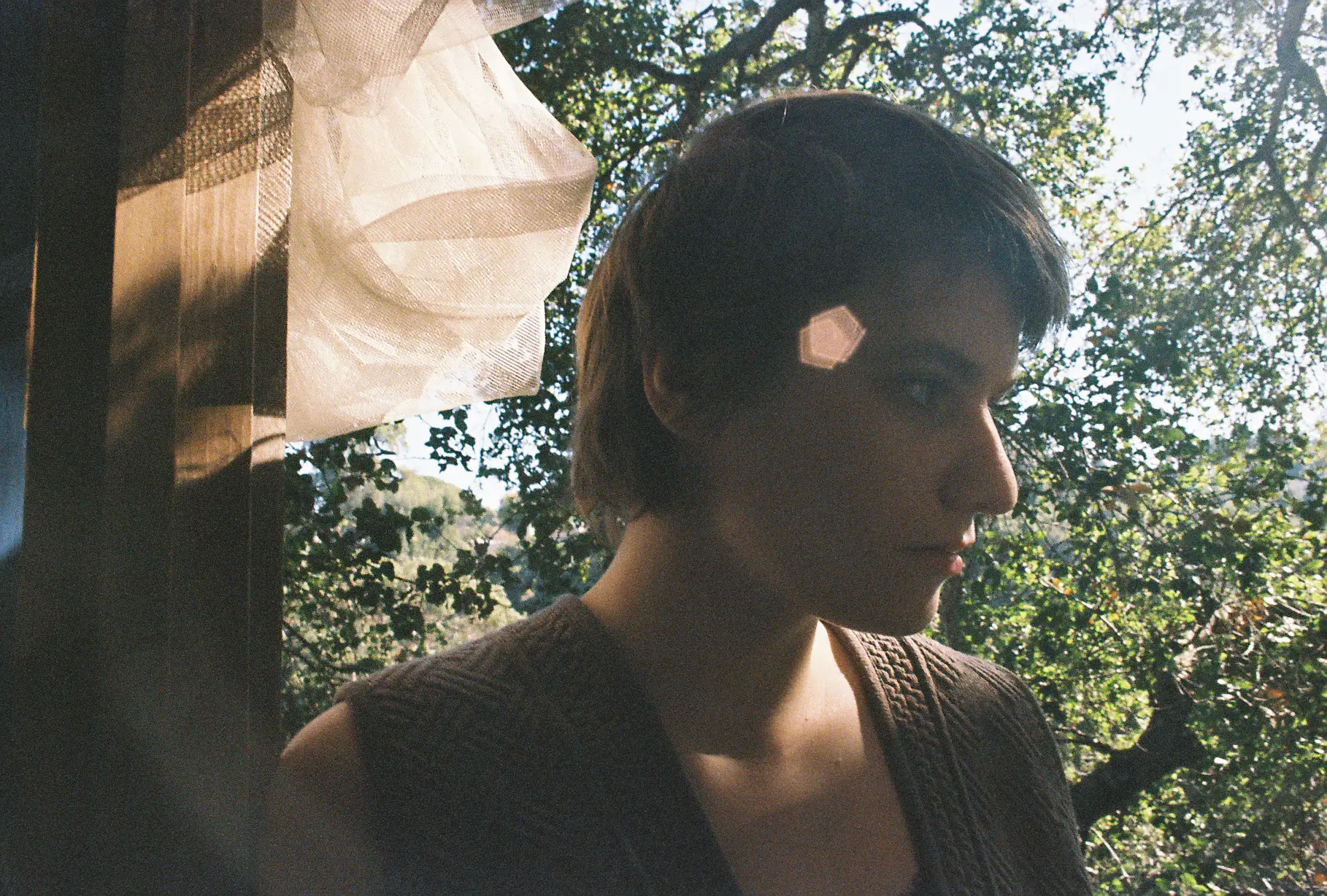
The music video’s home video footage of childhood memories – including a treehouse of wonders – combined with Studebaker’s heartwarming hypotheticals makes “Dreamland” a must-listen-and-view.
“Body Talk”
What I have found is that once you give up on a life, it doesn’t go away. You are always appeasing, or bargaining with, or neglecting that former self, the spirit who used to be behind the wheel, and would like to be still. I don’t cross to that side of the street anymore. But it is important for me as a healthy person to acknowledge that the demons are still around.
– Rufus Wainwright
“Body Talk” is one of the most thematically resonant tracks on Dreamland. Much like the EP, it carries a sense of weighted grief with it. It reminds its listeners to be kinder to our bodies and ourselves; to accept the things we can’t control as we grow.
“I wrote that song during a time when I was putting a lot of pressure on myself.” Studebaker says. “I could feel the stress impacting my body in a negative way. ‘Body Talk’ is a reminder to practice self-care and have faith that things will be okay.”
Any one of Dreamland’s tracks have the ability to exude emotion out of its listeners, whether it be sadness, joy, beauty, or a keen relatability to Studebaker’s acute philosophical musings on the more difficult aspects of life.
“Pastel Purple”
Variety of form and brilliancy of color in the object presented to patients are an actual means of recovery.
– Florence Nightingale
“Pastel Purple’s” instrumentals evoke an ever-so-slight sound of a Feist song. Throughout the track, Studebaker references a heavenly motif of a “pastel purple lady.” The eponymous color reminds Studebaker of one of her close friends, Jenny Morris, who passed away in the Oakland Ghost Ship Fire in 2016. Studebaker wrote this song the week she died and performed it at her service.
“Jenny was a very genuine friend to me,” Studebaker remarks. “She was also an amazing artist and musician who had a beautiful voice and could harmonize beautifully with anyone and anything.”
If one considers the healing attributes art has on the expression of the human condition, then perhaps Zelma Stone’s music – its creative process – isn’t a conscious choice for the artist; some art is a necessity for the creator, and, by transitive property, certain empathetic receivers of it – listeners, viewers, readers, watchers, etc. – whichever medium in which the work of art being consumed may be.
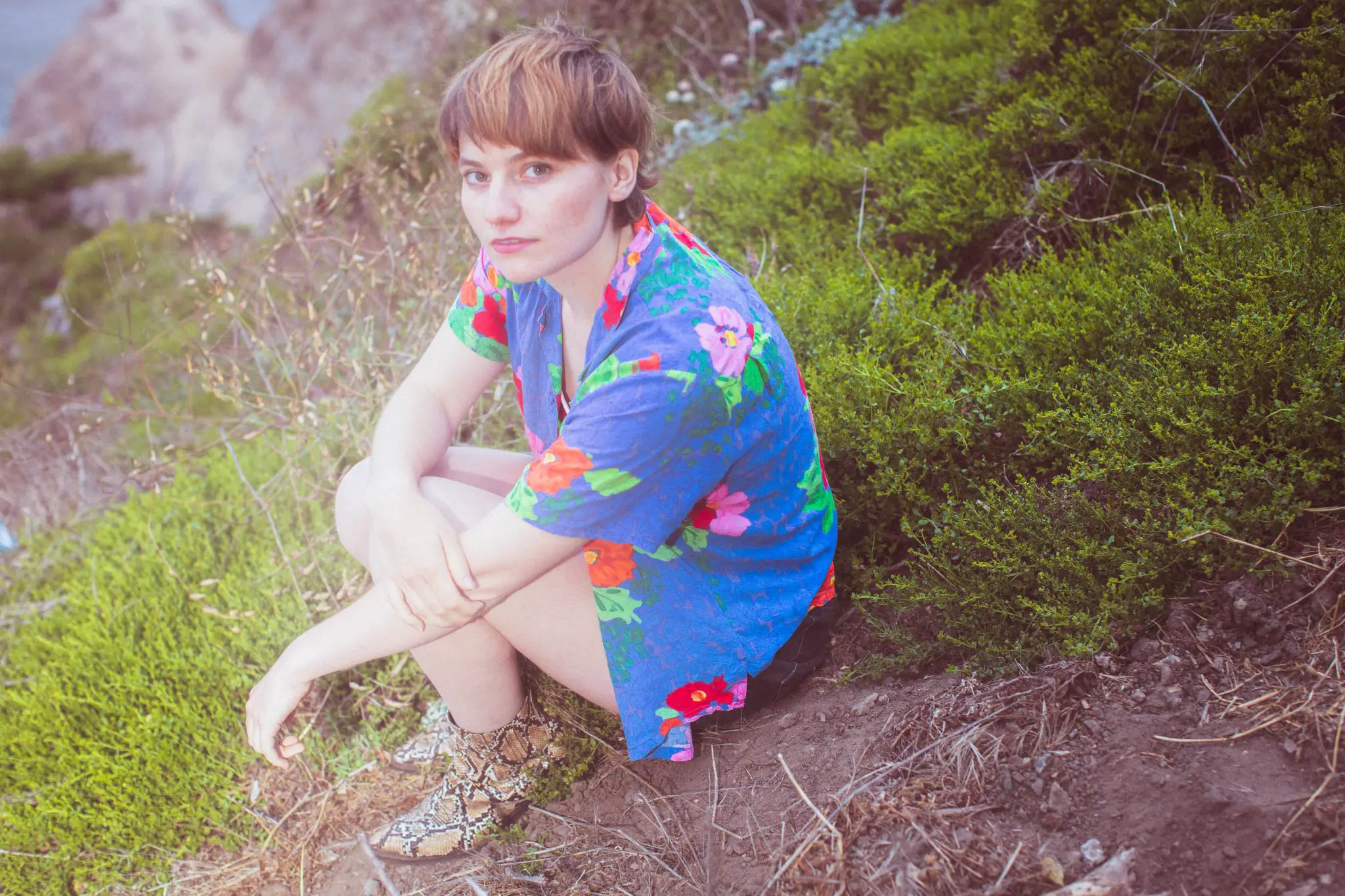
“For the Dreamland EP writing cycle, grief was definitely a common thread.” Studebaker reflects. “Even when I would write about love or romance, grief kept coming up.”
“We’re All Gonna Die”
It is always by way of pain one arrives at pleasure.
– Marquis de Sade
Thematically and aesthetically, “We’re All Gonna Die” is an ideal track on which to end the EP. After spending the previous four tracks meditating on life, loss, grief, love, memory, and the inevitability of death, Studebaker implores her listeners to seize the day, even weaving an air of romance into the track.
“I did initially start writing ‘We’re All Gonna Die’ about feelings of romance coming on too strong, and going back and forth with myself about it.” Studebaker says. “And then I had the thought: ‘So what? We’re all gonna die!’”
It’s a hopeful end to an already nuanced and considerably upbeat EP about confronting our considerably less-than-comfortable-but-equally-essential feelings in the context of our larger minds and collective memory palaces. Life is short. Enjoy it. Find love in any capacity. Love ourselves. Remain open to romantic possibilities in life.
Zelma Stone After Dreamland
Beyond the Dreamland EP, Zelma Stone has been considerably active among the San Francisco music scene. In particular, the Rickshaw Stop is an iconic local venue at which the band has performed, serving as a mecca for famous national and international artists visiting the West Coast since the TV studio-turned-music venue’s inception in 2004.
“When I think about performing in San Francisco, the two venues that come to mind are Rickshaw Stop and Bottom of the Hill.” Studebaker recounts. “I love Rickshaw Stop, and I think I’ve played more shows there than any other venue…I had my first release show there last year, which was a really special bill of female-fronted projects.”

M.I.A., Vampire Weekend, Grimes, Silversun Pickups, Diplo, Steve Aoki, Mac DeMarco, Billie Eilish, Sam Smith, Mike Posner, Pussy Riot, The Weeknd, Wax Tailor, Starfucker, and Washed Out are only a few of the noteworthy bands to perform at Rickshaw Stop, lending a simultaneous prestigious and homely vibe to those who frequent the establishment to both perform and listen.
“I’ve felt myself get more comfortable on stage with each show, and have watched my audience grow more and more.” Studebaker opens up regarding her recent performances and larger success.
What’s in store for Zelma Stone in the future? Although Studebaker would have loved to tour after Dreamland’s April 17 release, she’s instead investing her energy into creating. We are all staying indoors to help save lives during this pandemic – however, once things start to improve, fans may have a musical surprise from Studebaker.
“I am putting all of my focus towards recording new music that I can hopefully release later this year.” Studebaker says. “I can’t wait to tour after things clear up. I miss the high of performing, and that feeling of satisfaction right after getting off stage. I miss seeing people too!“
I hear that! Don’t we all?
“My big bucket list venue in San Francisco is The Fillmore.” Studebaker explains. “I’ve also never played at The Chapel and would love to change that. I played at The Independent for the first time earlier this year, and am really looking forward to playing there again.”
I cannot predict the future, but Zelma Stone has “it.” That unquantifiable quality that screams success. Something tells me that Studebaker will cross these venues – and many more – off of her bucket list once the world returns to “normal.” It’s difficult to imagine a talented artist more deserving of her ever-growing audience.
At the deepest level, the creative process and the healing process arise from a single source. When you are an artist, you are a healer; a wordless trust of the same mystery is the foundation of your work and its integrity.
– Rachel Naomi Remen, MD
**Looking for some soul-enriching, edifying new music help get you through this pandemic? Order Dreamland now via Bandcamp!**

